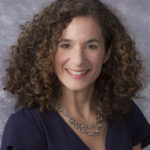
For the third year, the Membership Advisory Task Force sponsored a career development panel discussion at the 2013 ACNP annual meeting. The topic of the panel discussion was obtaining funding in today’s challenging climate. The panelists were Drs. Linda Brady, Dennis Charney, Maurizio Fava, Steven Hyman, and Bita Moghaddam. These panelists offered a range of perspectives, including those of funding organizations, university administration, and principal investigators. The discussion was lively and addressed a variety of topics related to funding and career development, with questions both submitted in advance and posed informally during the session. In general, panelists urged early-career scientists to be persistent and practical when setting goals, obtaining positions, and applying for funding. The issues addressed during the discussion ranged from career-focused to funding-focused. Career issues included how to balance clinical and scientific efforts; how to develop collaborations with senior colleagues; whether MDs should consider hard-funded positions; and how to obtain a faculty position, negotiate for resources, and succeed once in the position. Funding questions included how to plan and pace grant submissions to ensure adequate salary coverage over time; how to obtain funding for innovative ideas; and how to balance striving for breakthroughs with maintaining stable funding. Panelists urged participants to become familiar with the variety of possible funding sources, learn about their specific priorities (e.g., emphasis on dramatic breakthroughs vs. more carefully grounded progress), and develop relationships with program representatives who can offer feedback on potential application topics. To face the challenges of this difficult funding period, panelists emphasized the value of planning career decisions carefully and managing effort strategically in order to maintain a successful scientific career. In all, the panel was well attended and well received, providing practical and inspiring advice for both junior and more established scientists.
